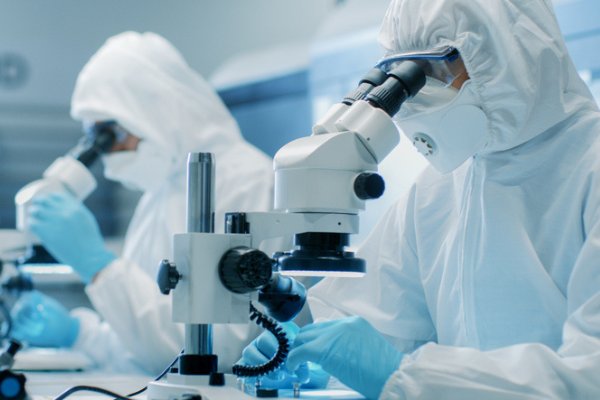
You worked as a CTP for 3 years, moved into a project/technical leader role, then a Sr. Manager where you managed people and operations and now work as a Sr. Principal Consultant. That’s a lot of career progression in a period of less than ten years. How did you manage that?
I work for a large company so there are lots of opportunities to work in different places and learn new things. I change roles about every 2-3 years and I have never been bored, but I have remained consistent by working on laboratory focused teams so my skills are considered transferable. I feel very fortunate that there are so many unique opportunities where I work.
Regarding the supervisory responsibilities you assumed, which one were you most prepared to execute against, and which one will require the most time to get up to speed?
While I moved to a different plant site, I’ve remained consistent in working on the chemistry side. Thus, I knew the equipment, testing techniques/methods, e-systems, and regulatory requirements.
What I must establish with every move are the daily workflow processes, molecule/product science, procedures, people and “lab/site culture.” Procedures are by far the most difficult to learn because there are so many (hundreds per molecule) and procedures are detailed and lengthy. Daily workflow processes are easy to pick up on as you are typically integrated into those huddles and meetings from day 1.
This new role also required you to supervise CTPs. Based on your years as a CTP, what are some behaviors exhibited by a high-performing supervisor?
The best leaders in lab management:
- Understand the strengths and interests of each organizational player and assign tasks accordingly
- Understand their operating capacity model, projections and industry trends such that the lab can operate proactively instead of reactively with appropriate resourcing
- Have meaningful KPIs driving continuous improvement
- Prioritize safety and quality
What advice do you have for a CTP looking to follow in your footsteps, and make the transition to a project lead or supervisory role?
Make certain you have a well-defined career map and development plan. Your development plan should have actions to address gaps moving towards your next role.
For example, if it is an expectation to perform business planning at the next level and that is not currently a function of your role, use your development plan actions to allow you to participate in business planning. That might seem like a stretch, but if your boss is dedicated to your development, they should determine a suitable way for you to learn about that process at your current level.
In your former role as a CTP, what daily tasks did you normally tackle as part of a typical workday?
My bench days were in a more non-routine lab, so I tackled everything from method development, analytical investigations, to pre-commercial phase product testing. While no two days were the same, I did have a favorite small molecule and when it would arrive everyone knew it was mine to test and that I would squeeze it in my schedule no matter what.
What’s the one thing you wish you had learned earlier in your career?
Influence mapping. Early in my career I wasted time looking to create change only to use the wrong influence tactic. One person may be influenced by data while another person might respond to alignment from senior leaders. Some are influenced by emotional appeal while someone else may need a “what’s in it for me.” Today, when I approach major change drivers, I do an assessment of who I need to influence and how.
Think about an early career CTP. What can you share to help advance in the workplace?
Turn rejection into opportunity. True story, I have obtained every role I have held by first being rejected for another. Every. Single. Role. However, I have ALWAYS come out ahead by getting a different opportunity. I would have never worked in the small town of Clinton, Indiana if it were not for HR matching me to a better fit role after being rejected from an interview at headquarters. That role continues to be my favorite work experience to this day and I would not change a thing about taking that “2nd pick” opportunity.
How important is gaining new skills to achieving success as a CTP? Do you think it is better to be a self-learner, or were you a fan of taking additional classes/seminars to gain new skills?
I think this depends on where you see yourself and your interests. If your goal is to be the company SME on light obscuration testing, learning techniques outside of particulates isn’t going to be as value adding as spending your days troubleshooting vs. someone who may want to be a QC Leader, requiring a high-level understanding of various testing techniques, but no deep subject matter expertise.
In your role as Chair, ACS Committee on Technician Affairs, what are you most eager to accomplish over the next few years?
We just completed our Strategic Planning Retreat and have put together an excellent roadmap of goals and strategies. In high level summary we will be focused on :
- Creating, identifying and disseminating tools for professional development
- Highlighting the accomplishments of CTPs through awards and recognition
- Outreach to stakeholders inside and outside ACS
While I am excited about every goal and strategy, I will call particular attention to our ongoing deep dive analysis of demographic data and using that to drive our decisions and outcomes. I am looking forward to having the most up-to-date data leading development and recognition efforts on behalf of our stakeholders.
How did operational excellence come to be a passion of yours?
Waste is my biggest pet peeve. Plus, I love all things data-metrics, analytics, projections, matrices, KPIs, etc. Key decisions should be made based on strategy, not thoughts or feelings. I’m so passionate about efficient processes that I point out examples of everyday bottlenecks or throughput to my 12-year-old routinely. We have an established WIP cap and Kanban for personal activities. My son identifies those who perform work in parallel or secondary processes during downtime vs. those who don’t and I kind of love it.
If you could select a total of three scientists/business leaders – deceased or alive – to support you on the project of your choice, what project would you pick, and who would you put on the team?
Project: I’ve always wanted to implement an external pharmaceutical collaboration organization focused on addressing inefficiencies, creating harmonization and designing accelerated solutions for transfers between R&D to commercialization laboratories. Similar in goals to TransCelerate, but aimed at optimizing QC lab outcomes globally.
I would align a team with the background for this very specific endeavor. There is a high-profile individual with a pharmaceutical regulatory background and existing connection/network credentials working on the TransCelerate platform. I would bring in our very own former ACS District II Director, Dr. Christina Bodurow. She has an amazing ability to influence, project manage, connect, and business plan while also bringing a strong technical background.
I then would work in a contact who has extensive QA and QC leadership expertise. This individual has worked in manufacturing operations and labs, global quality labs and lead large scale benchmarking projects successfully as both a leader and individual contributor.
About the Contributor

Erin Dotlich is currently a Sr. Principal Chemist at Eli Lilly. Having worked at 5 different Lilly sites and worked in multiple roles, she has helped launch both human and animal health products, lead teams in both small and large molecules and gained expertise in Lean Six Sigma. Erin has served in multiple local ACS roles including Secretary, Chair, Alt-Counselor, and is most recently Counselor for the Indiana section. She is currently the Chair for the Committee on Technician Affairs. She is an advocate of diversity and inclusion efforts having lead multiple company and community efforts as well as serving on her company’s PRIDE ERG executive committee for a number of years. She is a champion at ensuring the recognition of others and has successfully nominated 5 Fellows. Erin’s is most passionate when using her Lean Six Sigma expertise, project management skills and strategic planning background.
This article has been edited for length and clarity. The opinions expressed in this article are the author's own and do not necessarily reflect the view of their employer or the American Chemical Society.








